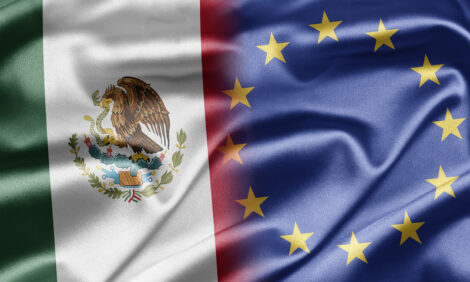



EU, Mercosur trade bloc strike free trade agreement
Deal faces pushback from France, EU farmersThe European Union and South America's Mercosur bloc dragged a long-delayed free trade deal over the line on Friday, announcing an agreement - at least in principle - on the pact that has deeply divided nations in Europe, reported Reuters.
In a press conference in Montevideo, European Commission President Ursula von der Leyen and her Mercosur counterparts heralded the deal after 25 years of talks, citing the need for free trade in the face of rising protectionism globally.
"This agreement is not just an economic opportunity, it is a political necessity," von der Leyen said. "I know that strong winds are coming in the opposite direction, towards isolation and fragmentation, but this agreement is our near response."
European officials and proponents of the deal say that it offers a way to reduce reliance on trade with China as well as insulating EU nations from the impact of likely trade tariffs being threatened by U.S. President-elect Donald Trump.
The trade agreement is however just the start of what could be a lengthy endgame to turn it into a reality. It needs to be legalized, translated and then approved by member nations, and could even be blocked, with France the fiercest opponent.
A short press conference in Montevideo itself underscored some of challenges. Only von der Leyen and Uruguayan President Luis Lacalle Pou spoke, with no questions taken after. The presidents of Brazil, Argentina and Paraguay sat in silence.
"Only two of the five spoke and no questions were taken. That in itself, speaks volumes," said an EU source closely involved in the talks.
"This came out but it came out, but by the skin of its teeth... At least we have the association agreement, the rest will keep playing out in the coming days."
With negotiators racing against time and pushback against the deal at home, von der Leyen had made a late call to fly in for the summit of Mercosur, which includes farming powerhouses Brazil and Argentina as well as Uruguay and Paraguay.
The agreement saw amendments made to public procurement, auto trading, and critical minerals exports versus a version agreed in 2019. It also saw an annex about environmental measures to defuse South American fears about EU protectionism.
"After more than two decades, we have concluded negotiations on the agreement between Mercosur and the European Union," Brazilian President Luiz Inácio Lula da Silva wrote on X.
Paraguayan President Santiago Peña acknowledged the deal was an important step but cautioned much work remained to be done. "We have to be very realistic, we have a long way to go," he told Mercosur leaders later on Friday.
EU farmers in opposition
France, the most vociferous critic of the deal in the EU, has branded it as "unacceptable". Underscoring the obstacles it now faces, French Trade Minister Sophie Primas pledged to resist its next stages, citing environmental and farming concerns.
European farmers have repeatedly protested against an EU-Mercosur deal that they say would lead to cheap imports of South American commodities, notably beef, that do not meet the EU's green and food safety standards.
European farm lobby Copa-Coge reiterated its opposition to the deal on Friday and called for protests in Brussels.
Italy said on Thursday there were no conditions for signing off on a deal. Poland said last week it opposed the free trade deal in its current form.
European green groups also broadly oppose the accord. Friends of the Earth calls it a "climate-wrecking" deal.
Conversely, a group of EU members including Germany and Spain say the deal is vital for the bloc as it looks to diversify its trade after the near-closure of the Russian market and discomfort about reliance on China.
"Spain will work to ensure that this agreement is approved by the majority of the (European) Council because trade openness with our Latin American sister countries will make us all more prosperous and stronger," Spanish Prime Minister Pedro Sanchez said on X.
EU proponents of the deal see Mercosur as a market for European cars, machinery and chemicals and a potentially reliable source of critical minerals, such as battery metal lithium, required for Europe's green transition.
They also point to agricultural benefits, given the deal offers greater access and lower tariffs for EU cheeses, ham and wine.
The trade agreement would require approval from 15 of the 27 EU members representing 65% of the EU population along with a simple majority in the European Parliament.
South American negotiators remain optimistic that the EU will eventually give its approval and that France will not be able to rally a blocking minority.



